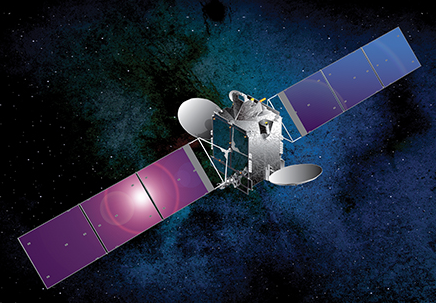[SatNews] This satellite was launched, three months later it ran through its list of orbital tests, then now, on to the real job it was launched to do.
Optus announced the newest satellite in its fleet, Optus 10, has officially commenced commercial services. Three months after its successful launch, and following the completion of in-orbit testing, Optus 10 is now providing backhaul and connection services for regional and remote sites across the Optus mobile network.

Optus 10 is a Fixed Satellite Services (FSS) spacecraft built for Australian telecommunications service provider Optus. Optus 10 is the tenth satellite in the Optus fleet and the second in the fleet built by SSL. It was designed with 24 Ku-band transponders, demonstrating the flexibility of the 1300 satellite platform to accommodate missions requiring smaller satellite payloads. The satellite was successfully launched in Q3 2014.
This enables Optus to further leverage its telecommunications infrastructure, providing voice and data connectivity for consumers and Enterprise customers in rural and remote parts of Australia.
Paul Sheridan, Vice President of Optus Satellite said, “We know how important it is for customers living and working in regional communities to have access to reliable mobile coverage.
“As the only company in Australia to own and operate networks across fixed, mobile and satellite technologies, we’re in a unique position and have a proven track record of providing seamless broadcast and communication services to Australians everywhere.”
The Optus 10 satellite:
- Launched from the Guiana Space Centre, French Guiana on an Ariane 5 rocket.
- Positioned in orbit at 164 degrees East.
- Is the tenth successfully launched satellite and the sixth in the operating fleet.
- Has a lifespan of up to 15 years.
- Is controlled from Optus’ Sydney earth station in Belrose with back-up by Optus’ Perth earth station.
- Is able to operate in either the Ku Fixed Satellite Services (FSS) or Broadcast Satellite Services (BSS) bands.

